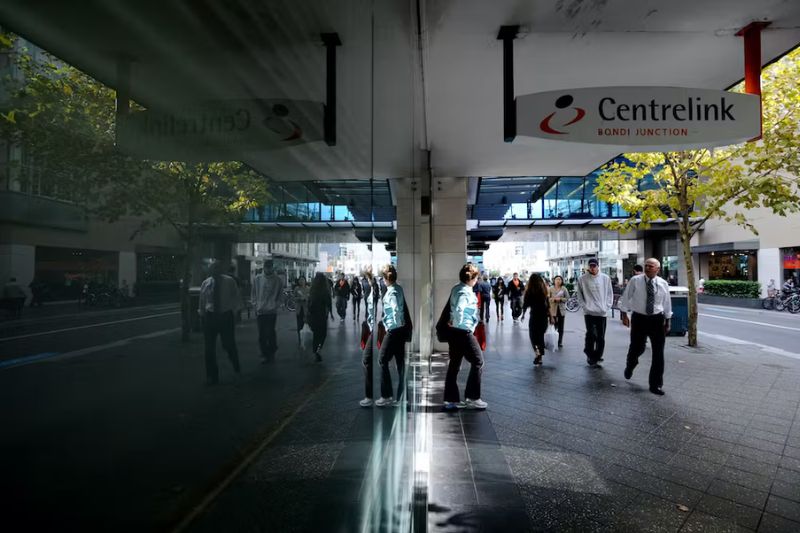It sometimes seems that we live in a world of almost weekly observances. Recently, after Federal Budget week, comes Laudato Si’ Week with its call to respond to climate change. In a world where so many people face economic hardship and are anxious about such basic needs as food and shelter, the conjunction remind us of the connections between the apparently disparate economic and environmental issues that will determine the lives of our children and their descendants.

Budgets are written as stern economic statements that promise the serious reader an account of the balance between spending and income. In reality they are more like theatre. Leaks are the promos. They promise the casual observers that the drama will have a plot to titivate all tastes and will deal seriously with the major issues of the day. That promise, of course, will be tested in performance.
Seen from that perspective, the recent Federal Budget had the virtues and the limitations of an effective promo. People who had been doing it hard would welcome the small benefits such as an increase to Job Keeper, more support for single parent families, a pay increase for aged care workers, encouragement for bulk billing, and subsidies for power bills, and administrative machinery to move to a clean energy economy.
The Budget did not, however, offer priorities for difficult times. Like the kings of Noah’s time when the rain began, it promised life as usual. The test of seriousness in governing in difficult times lies in responding to the needs of people who are disadvantaged. In Australia that would mean addressing gross inequality. This is necessary to finance shaping a society in which all can live decently. Raising Job Seeker to a decent level is a symbol of this commitment to respect people who are disadvantaged. At present people who are unemployed are dismissed as the undeserving poor who need to be humiliated by punitive and unrealistic demands. Other necessary measures are to address the needs of Young First Nations people so disproportionately represented in the Justice system, strengthening the health and other services to young Australians, providing public housing, and resourcing communities to address their own needs.
The Budget also provided for only incremental measures to lower emissions. The growing scientific consensus, however, suggests that such measures will be insufficient even to confine global warming to its already destructive hoped for level. Even if we were to meet that modest target, we and our children would still face the melting of glaciers, increase of sea levels, regular bushfires, droughts and floods, with all their effects on people’s lives and level of trust in Government.
The pusillanimity of the Budget in its response both to Climate Change and to economic inequality provides good reason to return to Laudato Si’. It was significant in alerting people to the reality of climate change. It also demonstrated the connection between the treatment of the Environment and the treatment of the poor.
'The test of seriousness in governing in difficult times lies in responding to the needs of people who are disadvantaged. In Australia that would mean addressing gross inequality.'
Written seven years ago, the document brought together the best available science, theological reflection, analysis of economic ideologies, and account of the relationships involved in human flourishing. It held all these things together in a deep spiritual and practical vision. And it did all this while speaking a language that all of us ordinary people – Christians, atheists, scientists and politicians – could understand.
Laudato Si’ is significant because it ties our treatment of the world of which we are part to our treatment of human beings. It broadens the understanding of social justice to include ecological justice. The necessary connection between the two aspects of justice is summed up in the phrase Integral Justice. Previously many saw them as separate, allowing us to exploit the environment as we wish while simultaneously responding with respect to other human beings. Pope Francis showed how exploitation of the environment is related to the exploitation of human beings. The poverty of poor people confined to slums by an unjust economy is yoked to the pollution of waterways and the air. In Pope Francis’ world respect for the natural world and for each human being go together. We are connected to our world in a network of relationships that are interlocking, so that we cannot respect people without respecting our environment.
This insight has inspired and illuminated research by Jesuit Social Services into disadvantage in Australia. It is married to the recognition that disadvantage in Australia is largely focused in relatively few local areas. Many indicators of disadvantage, such as economic poverty, limited access to education, work, to health and other services and computers, involvement with the justice system, liability to mental and physical illness are clustered there. They did not simply coexist there but interacted with and intensified one another. In these areas the voices of people are rarely heard, their faces are rarely noticed, and the services that should be available to them are fragmented.
Vulnerability to the effects of climate change compounds other areas of disadvantage. Extreme temperatures increase the costs of heating and cooling, cause respiratory and other illnesses, impede learning and local travel to schools and workplaces, health and other services.
The need and the complexity of responding adequately to climate change is demonstrated in a recent collaborative study of disadvantaged areas in Melbourne’s West . It recognises that the experts on the effects of climate change the local communities affected by it. They will also be best placed to address it. It follows that Australia requires that government and non-government organisations must work intensively and cooperatively with these communities.
Reflection on both Budgets and Papal Documents places local communities at the centre of the large change needed to make the world more just.
Andrew Hamilton is consulting editor of Eureka Street, and writer at Jesuit Social Services.